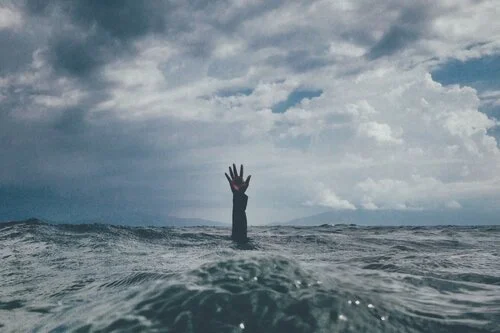How Common Is Post-Traumatic Stress Disorder?
Post-Traumatic Stress Disorder is something that can happen to any of us. After all, we all may witness or experience a traumatic event at some point in our lives. When something dangerous and sudden happens, when we witness it, or when it happens to us, we’re at risk of developing PTSD. This is especially true if we think anyone might die, including us.
While traumatic events don’t always end in PTSD, they sometimes do, and ‘sometimes’ is enough. We don’t have to be a veteran or a first responder to develop PTSD, though it’s true that these people are more at risk of doing so due to the nature of their jobs. But if we all may experience at least one traumatic event in our lifetime, then how likely are we to develop PTSD? How many people actually do develop and struggle with it?
Post-Traumatic Stress Disorder
PTSD manifests through a variety of symptoms. In most cases, we relive the traumatic event somehow, whether it’s through flashbacks, physical sensations, or dreams. Anything can remind us of the event. Thoughts, feelings, words, objects, and even situations. That’s why we do our best to avoid anything that reminds us of that event, sometimes even people.
PTSD leaves us always on edge. We’re easily startled. We have a hard time concentrating. Sleep? It’s impossible. This leaves us feeling angry and irritable; it pushes us into acting out, being reckless, or even a little destructive.
At the end of the day, PTSD makes us blame ourselves for what happened, even if it wasn’t our fault, even if there’s nothing we could have done to change it. It weighs on us a lot.
The Numbers
While most people will experience at least one traumatic event in their lifetime, it is estimated that around 6% of the population will develop PTSD sometime in their lives. Another estimate says around 5% of the population struggles with PTSD every year. But most people who do will recover. We need treatment, of course. PTSD won’t fade away on its own. But it’s not invincible. We can beat it if we know how.
Addressing PTSD
There are a few things we can do to cope with PTSD. We can establish a routine for us to follow. Ideally, that would include exercising regularly and eating and sleeping as best we can. But let’s not aim too high. We have to keep in mind what we are able to do and focus on that. We won’t cure our PTSD in just a few days; we have to be realistic.
We can reach out to our loved ones for help. PTSD is a difficult fight, and we don’t have to do it alone. We’ll do much better if we have people to support us.
Seeking Help
Ultimately, the best way to face PTSD is to get professional help. There’s a lot of stigma around mental healthcare, but in this case, it’s not just important; it’s necessary. We’re not weak for seeking help. If anything, we’re being strong enough to reach out when it’s the last thing we want to do.
PTSD can leave us with a lot of trust issues, and counseling requires us to be vulnerable. It’s a difficult thing to do after what we’ve experienced, but the results are worth it. Life with PTSD is hard. We can never rest. We can never catch a break. But we don’t have to live like this, not forever.
That’s what counseling can help us with. It can help us overcome the trauma harming us and our lives. All we have to do is be brave enough to reach out.

